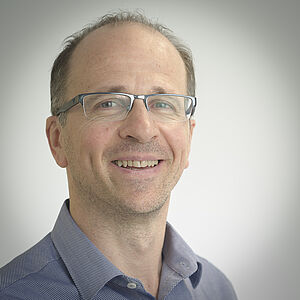
Rénato Froidevaux
Présentation
Professeur de l’Université Lille Bureau : | C126 (bâtiment PolytechLille) |
Téléphone : | 03 20 41 76 66 |
Email : | |
Adresse : | PolytechLille |
Institut Charles VIOLLETTE – Equipe Procédés Biologiques, Génie Enzymatique et Microbien
Dernières actualités
Academic degrees / Main Collective and Official Responsibilities
Academic Degrees
2008: Habilitation à diriger des recherches (PhD Direction), Lille University
2001: PhD in Enzyme Engineering, Bioconversion and Microbiology, Lille University
1998: DEA in Enzyme Engineering, Bioconversion and Microbiology, Lille University
1996: Master in Biochemistry, Lille University
1995: Licence in Biochemistry, Reims University
1994: DUT Applied Biology, IUT”A”, Lille University
Main Collective and Official Responsibilities
2016-Now: Head of the ProBioGEM team (# 25 persons) at Viollette Institute
2013-Now: Member of the scientific comity of GECCO Industry (Department 59)
2011-Now Member of the steering and scientific comity of EQUIPEX Realcat (Lille University)
2009-Now: Director of French-Romanian Master double diplomation
2009-Now: Director of Master Quality, Health, Safety and Environment, Lille University
2006-2013: Director of Licence of Chemistry option QEPI, Lille University
Research activities
During his thesis, he studied the hydrolysis of bovine hemoglobin by pepsin in liquid / liquid biphasic systems to extract opioid peptides during the proteolytic reaction. A continuous reactor (CSTR) has been then designed for the continuous preparation of two pure hemorphins, due to the kinetic modulation of the hydrolysis of hemoglobin in the presence of solvents. He has also worked on enzymatic engineering associated with microfluidics for the design of BioMEMS and their implementation with free and immobilized enzymes. Recently, he has developed a new research theme at the Charles VIOLLETTE Institute: the valorization of biomass (lignocellulosic, oleaginous) enzymatically to obtain molecules of interest (sugars, acids, furfurals ...). In this context, he works on the development of approaches to research new biocatalysts and on the implementation of hybrid catalysis, the combination of chemical catalysis and enzymatic catalysis. He has published 32 articles and journals in international journals since 1999, is co-author of two book chapters in "Modern Applications of High Throughput R & D in Heterogeneous Catalysis" in 2014 and oral lectures in international congresses in the fields biotechnology, enzymatic engineering and separation.



